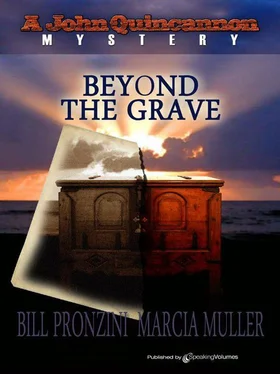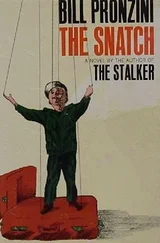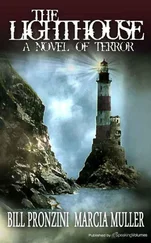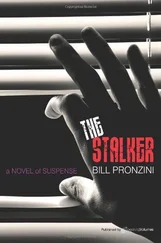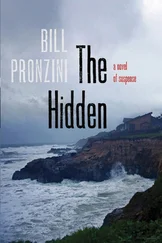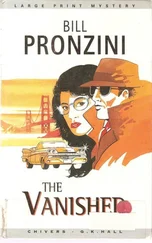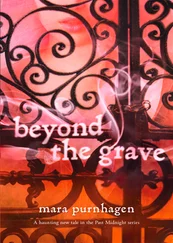Bill Pronzini - Beyond the Grave
Здесь есть возможность читать онлайн «Bill Pronzini - Beyond the Grave» весь текст электронной книги совершенно бесплатно (целиком полную версию без сокращений). В некоторых случаях можно слушать аудио, скачать через торрент в формате fb2 и присутствует краткое содержание. Год выпуска: 2011, ISBN: 2011, Издательство: Speaking volumes, Жанр: Исторический детектив, на английском языке. Описание произведения, (предисловие) а так же отзывы посетителей доступны на портале библиотеки ЛибКат.
- Название:Beyond the Grave
- Автор:
- Издательство:Speaking volumes
- Жанр:
- Год:2011
- ISBN:9781612321202
- Рейтинг книги:4 / 5. Голосов: 1
-
Избранное:Добавить в избранное
- Отзывы:
-
Ваша оценка:
- 80
- 1
- 2
- 3
- 4
- 5
Beyond the Grave: краткое содержание, описание и аннотация
Предлагаем к чтению аннотацию, описание, краткое содержание или предисловие (зависит от того, что написал сам автор книги «Beyond the Grave»). Если вы не нашли необходимую информацию о книге — напишите в комментариях, мы постараемся отыскать её.
Beyond the Grave — читать онлайн бесплатно полную книгу (весь текст) целиком
Ниже представлен текст книги, разбитый по страницам. Система сохранения места последней прочитанной страницы, позволяет с удобством читать онлайн бесплатно книгу «Beyond the Grave», без необходимости каждый раз заново искать на чём Вы остановились. Поставьте закладку, и сможете в любой момент перейти на страницу, на которой закончили чтение.
Интервал:
Закладка:
Mas alia del sepulcro . Beyond the grave.
Donde Maria . Where Maria …
Half a mile above a sprawling cattle ranch, the road devolved into a bare-rock slope so steep the road-builders had had to chisel deep grooves into the stone in order to keep coaches and horses from slipping on both ascent and descent. There were two sets of ruts, one worn so deep from use that it was now virtually impassable. Quincannon took the claybank up the second set, a slow process that consumed considerable time. The sun was falling toward the sea when he finally crested the ridge and arrived at a way station called Summit House.
He stopped there long enough to water himself and his horse and to find out the locations of and distances between subsequent stage stops. Then he paid a toll of twenty-five cents for passage through a locked gate barring the road, not without reluctance-private toll roads annoyed him-and pressed on up a steep canyon to the summit. On the north side of the mountains was another station, Cold Spring Tavern. There was still an hour of daylight left when he reached it; but it was a long ride down into the Santa Ynez Valley to the next way station, and it would be foolish to travel unfamiliar mountain terrain after dark.
He put up at Cold Spring Tavern for the night, paying two dollars for a plate of beans and “beef” (the meat tasted suspiciously goatish) and for the privilege of sharing a straw mattress with a variety of tiny crawling vermin. By the light of a kerosene lamp he recorded in his notebook the details of what had taken place in Santa Barbara. Then he studied the half-dozen letters he had taken from Luis Cordova's study and the hollow, conical piece of metal he had found near the body. The careful examination yielded no more information than the earlier, cursory one had. The letter gave him no definite idea of where the Velasquez artifacts had been secreted, nor any clue as to whether Luis or his mother had ever returned to the rancho to steal some or all of them. And while the piece of metal still seemed familiar to him, he was still unable to identify it or to say where he might have seen it before. Had Cordova's murderer lost it? Or had it belonged to Cordova himself?
At length, frustrated, he blew out the lamp and lay waiting for sleep. But his mind would not close down; and he was too stiff and sore from the fight with Evans and Witherspoon, and from his long ride, to force his body to relax. It was a long while before mind and body finally yielded.
When he awoke at dawn he was even stiffer, he itched all over, and his humor was as bleak as the sudden overcast that had settled above the mountains during the night. He washed in cold water, drank several cups of hot, bad coffee, disdained breakfast because he could smell it cooking, and set out again within the hour. The morning was raw, lashed by a chill wind that bit through his clothing, seemed to build a thin layer of ice on his skin. All at once the balmy spring weather of San Francisco and Santa Barbara had become a memory. It was as if he had been thrust backward in time, to the middle of winter. Cold enough to snow, he thought sourly. Bah.
He made his way down the north slopes into the Santa Ynez Valley. After fording a shallow river, he passed a third way station-Ballard's Adobe-and eventually came to the settlement of Los Olivos. There was a hotel in the settlement; he wondered if Felipe Velasquez and Barnaby O'Hare had stopped there for the night, or if they had ridden straight on to Rancho Rinconada de los Robles. In either case they had no doubt passed a better night than he had.
The road led him up Alamo Pintado Canyon, traversed rolling grasslands studded with fat cattle, then entered another canyon-Foxen Canyon, if he remembered correctly-where he soon encountered one of the stage line's Concord coaches bound from Santa Maria to Santa Barbara. Twenty minutes after that he came on the off-road, marked by a pair of giant laurels, that Velasquez had told him led to Rancho Rinconada de los Robles.
Several small ranches fanned out along this road, parcels of hilly cattle graze that had once been part of Don Esteban's vast holdings. Herds of white-faced cattle speckled the landscape; there were occasional flocks of sheep as well. He came on ranch wagons, buggies, cowhands on horseback-considerably more traffic, it seemed, than there had been on the stage road. It was well past noon when he topped a rise and saw, finally, a mile or so in the distance, the wooded hill on which the buildings of the Velasquez hacienda stood outlined against the dull gray sky. From here he could also see, at an angle to his right and perhaps a quarter mile this side of the hill, the ruins of the old pueblo and Padre Urbano's church, San Anselmo de las Lomas.
Quincannon rode toward the hacienda. But instead of proceeding there directly, he veered off on a grass-choked wagon track, obviously little used these days, that took him to the pueblo. It was much larger than he had expected. Once it had contained at least two dozen buildings-the church; a convento adjacent to it, where the padre had lived; dwellings for vaqueros and for laborers and their families; a garrison for the rancho's private militia; stables, workshops, and storehouses. Here and there was evidence of tanning vats, racks for drying cowhides, a blacksmith's forge, big adobe kilns for the baking of bread and the making of pottery. Beyond the church was an overgrown graveyard. And beyond the workshops an orchard of apple and pear trees stretched in thick profusion alongside a stream swollen from the winter rains.
But it was a ghost pueblo now, allowed to remain in ruin as a bitter monument to the siege of 1846 in which Don Esteban and so many others had lost their lives. A few of the buildings were still intact, but most showed the scars of battle and the ravages of time: fire-blackened beams, cannon-shattered walls, piles of crumbled adobe-brick and masonry. High grass and wind-tangles of brush and wild patches of prickly-pear cactus obscured and half concealed much of the ruins, so that the details of the pueblo's configuration were blurred and Quincannon was unable to visualize exactly how it had looked half a century ago.
It was a desolate spot-all the more so on a gray day like this one, with the wind blowing cold and making odd little murmuring noises among the decaying remains. Anyone who knew its history and who possessed a superstitious nature would shy clear of it, he thought. It was the kind of place that would have a local reputation as being haunted by the souls of those who had died here. The vague supernatural aura troubled him not at all. He had long ago decided that if he ever came face-to-face with a ghost, he would no doubt turn tail and run; but until that happened he was not going to worry about the existence of spooks and apparitions and things that went bump in the night.
He dismounted near the church, leaving the claybank to feed in a clump of sweet grass. This was where Padre Urbano had died, according to Velasquez-and little wonder. Cannonballs had smashed two of its walls to rubble, and fire had gutted much of the interior; no one who had been caught inside could have survived. The iron cross atop the roof still stood, but it was canted sharply now, as if from the weight of years, and it was only a matter of time before what remained of the roof gave way and the cross and the other walls came tumbling down.
Curiosity took him into the shell of the church. Rubble littered the floor: crumbled and shattered brick, burned wood, twigs and other things brought by a thousand winds. In a jumble of collapsed timbers that might once have been the bell tower, he saw the cracked and rusted remains of the bell-forever mute because its clapper was gone. Grass grew up through cracks in the floor; moss carpeted some of the bricks. He moved through what was left of rows of simple wooden pews, toward an all-but-obliterated altar. In front and to the left of the foremost pew, the toe of his boot stubbed against a chunk of adobe; when he glanced down he thought he saw words etched into a large stone slab. He sat on his heels, scraped away grass and moss and rubble until he could read what was written there.
Читать дальшеИнтервал:
Закладка:
Похожие книги на «Beyond the Grave»
Представляем Вашему вниманию похожие книги на «Beyond the Grave» списком для выбора. Мы отобрали схожую по названию и смыслу литературу в надежде предоставить читателям больше вариантов отыскать новые, интересные, ещё непрочитанные произведения.
Обсуждение, отзывы о книге «Beyond the Grave» и просто собственные мнения читателей. Оставьте ваши комментарии, напишите, что Вы думаете о произведении, его смысле или главных героях. Укажите что конкретно понравилось, а что нет, и почему Вы так считаете.
